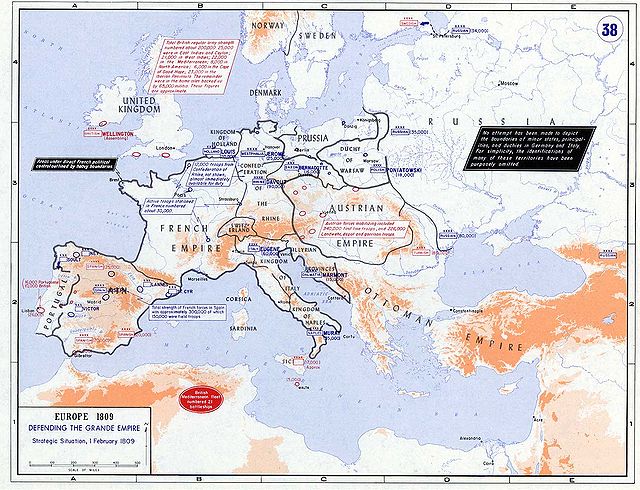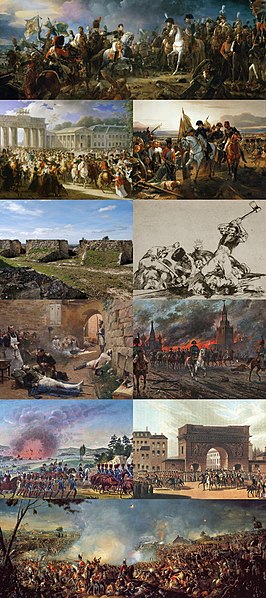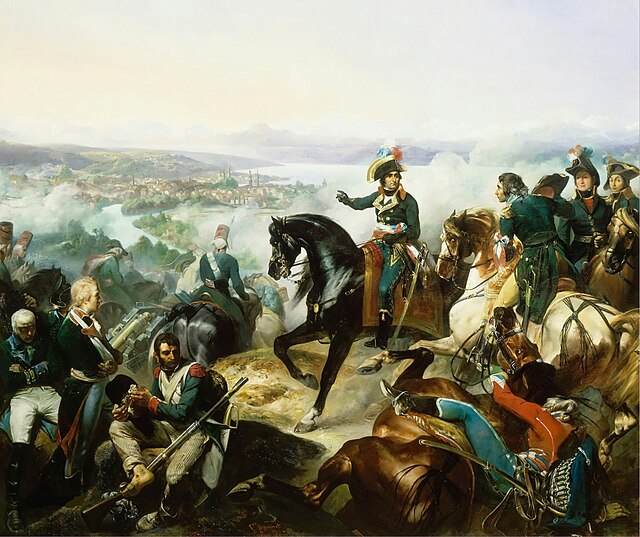The Battle of Wagram was a military engagement of the Napoleonic Wars that ended in a costly but decisive victory for Emperor Napoleon's French and allied army against the Austrian army under the command of Archduke Charles of Austria-Teschen. The battle led to the breakup of the Fifth Coalition, the Austrian and British-led alliance against France. Wagram was the largest battle in European history up to its time.
Bataille de Wagram, 6 Juillet 1809 by Horace Vernet
The strategic situation in Europe in 1809
Opening moves: strategic situation on 15 April
Battles of Eckmühl and Ratisbon
The Napoleonic Wars (1803–1815) were a series of conflicts fought between the First French Empire under Napoleon (1804–1815) and a fluctuating array of European coalitions. The wars originated in political forces arising from the French Revolution (1789–1799) and from the French Revolutionary Wars (1792–1802), and produced a period of French domination over Continental Europe. The wars are categorised as seven conflicts, five named after the coalitions that fought Napoleon, plus two named for their respective theatres; the War of the Third Coalition, War of the Fourth Coalition, War of the Fifth Coalition, War of the Sixth Coalition, War of the Seventh Coalition, the Peninsular War, and the French invasion of Russia.
Napoleonic Wars
French victory over the Prussians at the Battle of Valmy in 1792
Bonaparte defeating the Austrians at the Battle of Rivoli in 1797
French victory over the Austrians and Russians at the Second Battle of Zürich








